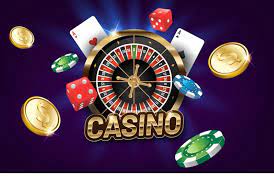Casinos have a long and varied history, evolving from simple games of chance into sophisticated entertainment destinations. This article explores the intriguing journey of gaya69, highlighting their historical roots, technological advancements, and their role in contemporary society.
Ancient Beginnings
The concept of gambling can be traced back to ancient civilizations. Evidence of early gambling activities is found in ancient China, where tiles from around 2300 B.C. suggest the presence of a rudimentary lottery game. Similarly, ancient Rome and Greece had various games of chance, often played during social gatherings. These early forms of gambling laid the groundwork for what would eventually become the casino industry.
The Rise of Formal Casinos
The term “casino” itself is Italian in origin, meaning “little house.” It initially referred to small villas or social clubs rather than gambling establishments. The modern casino as we know it began to take shape in the 17th century. The first casino, the Casino di Venezia, was established in Venice in 1638. This marked a significant turning point, as it was one of the first venues dedicated specifically to gambling.
The Golden Age of Gambling
The 19th century saw the rise of casinos in Europe, with Monte Carlo becoming a significant player. The Casino de Monte-Carlo opened its doors in 1863 and quickly became synonymous with luxury and high stakes. Its opulent design and lavish games attracted royalty, celebrities, and wealthy individuals from across the globe.
In the United States, the casino industry began to flourish in the early 20th century. Las Vegas, Nevada, emerged as a key destination, especially after gambling was legalized in 1931. The city’s growth was fueled by the construction of grand casinos and resorts, making it the gambling capital of the world. Iconic properties like The Bellagio, Caesars Palace, and The Venetian became symbols of the American casino experience.
The Digital Revolution
The advent of the internet in the late 20th century revolutionized the casino industry. Online casinos began to emerge in the 1990s, offering players the convenience of gambling from home. This new wave of digital gambling introduced innovative games and features, such as live dealers and interactive slots, enhancing the overall gaming experience.
Mobile technology further transformed the industry, with the proliferation of smartphones allowing users to gamble on the go. Apps and mobile-friendly websites have become essential for modern casinos, providing players with instant access to a wide array of games and betting options.
The Modern Casino Experience
Today’s casinos are more than just places to gamble; they are comprehensive entertainment hubs. They often feature a mix of fine dining, live shows, luxury accommodations, and high-end shopping. The emphasis is on creating an immersive experience that goes beyond the gaming floor.
Casinos are also increasingly focused on responsible gambling. Many establishments now offer support services for those who may be struggling with gambling addiction, implementing measures to promote safe and enjoyable play.
Conclusion
The evolution of casinos reflects broader changes in society, technology, and entertainment. From their ancient origins to their modern incarnations, casinos have continually adapted to meet the desires and expectations of players. As technology continues to advance and social attitudes evolve, the casino industry will undoubtedly keep reinventing itself, ensuring its place as a dynamic and enduring part of global culture.


